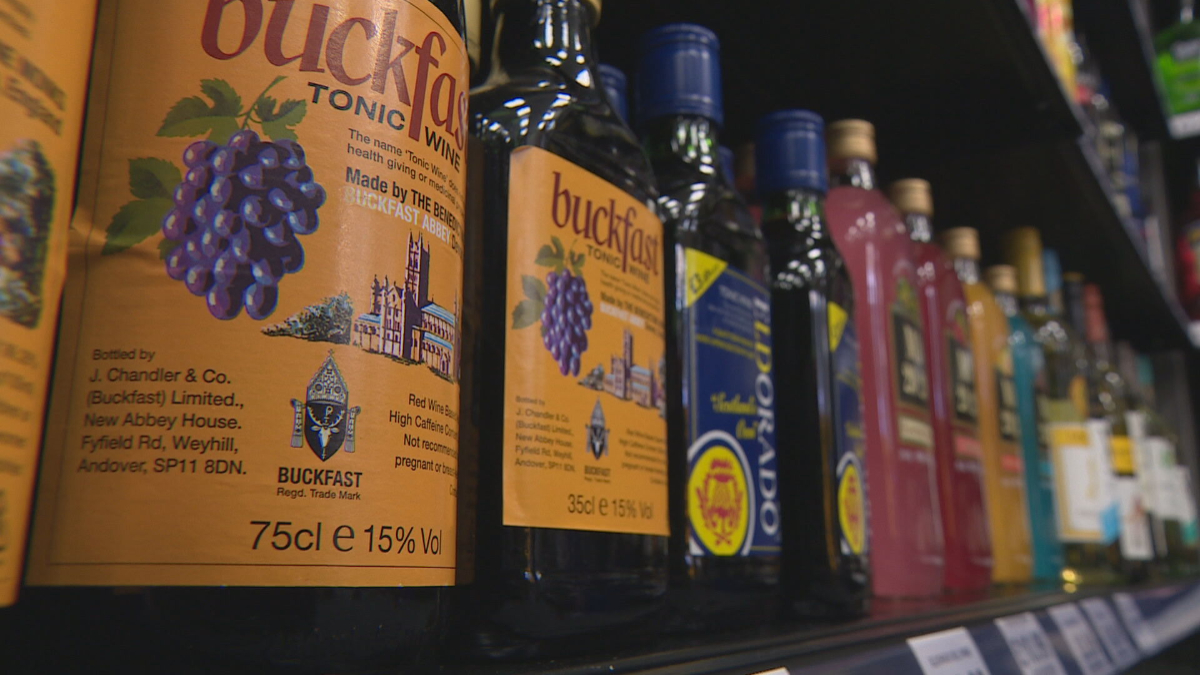Sales of Buckfast rose and prices fell in the year following the introduction of minimum unit charges in Scotland, research has found.
The popular tonic wine was among the only alcoholic drinks to drop in price after the base 50p per unit charge was introduced in 2018.
The laws, intended as a way of reducing the appeal of cheap high-strength beverages, increased the prices of most drinks faster than those in England when they came into force, according to data from Public Health Scotland (PHS).
But Buckfast fell slightly from an average of 67p per unit to 65p – just under the 66p average for all drinks across the country during the same time period – while “natural volume sales” rose by 40% per adult in the first year since the introduction of minimum unit pricing (MUP).
Sales of Tennent’s from convenience stores also rose, despite an average price increase of more than 10%, as did those of the caffeinated alcoholic drink Dragon Soop and Smirnoff Red Label vodka.
Public Health Scotland said the steepest price rises were for strong ciders in convenience stores and own-brand cider and spirits in supermarkets.
Average prices in Scotland increased in the first year of the law from 60p per unit to 66p, while in England and Wales it grew from 60p to 61p.
Supermarket prices rose by almost 18%, from 56p to 66p per unit, while in convenience stores they went from 63p to 67p.
PHS looked at sales data between May 2016 and April 2019 as part of its investigation into the MUP, which will expire unless MSPs vote to renew it in before May next year.
According to the data, pricing for fortified wines, like Buckfast and competitor MD20/20, at convenience stores fell from an average of £10.13 per litre to £9.90 between the 17/18 and 18/19 periods.
Dr Karl Ferguson, of the health body, said: “In the first 12 months after MUP was implemented we found that, especially for products that were priced below 50p per unit of alcohol prior to MUP, prices went up, the amount sold in larger container sizes went down, and sales also declined.
“We also found that, because of the price increase, even in instances where the volume of sales went down, the value of sales remained fairly constant or increased.”
Changes were seen in sales across different container sizes, including reductions in the amount sold in larger single-item containers.
The amount of beer and cider sold in the largest multipacks also fell, while sales in smaller multipacks increased.
The study found there was limited evidence that products were being introduced, discontinued or reformulated as a result of minimum pricing.
Alison Douglas, chief executive of Alcohol Focus Scotland, said: “Increasing the price of alcohol is one of the most effective and cost-effective policy measures to reduce alcohol consumption and harm. This research shows that people in Scotland respond to price.
“We have changed what we buy and reduced how much we buy due to minimum unit pricing. As expected, we’ve seen the greatest decrease in sales of high strength, cheap products.
“The overall effect of these changes has been a reduction of 3.5% in total off-sales of alcohol, according to previous research.”
Follow STV News on WhatsApp
Scan the QR code on your mobile device for all the latest news from around the country


 STV News
STV News

























